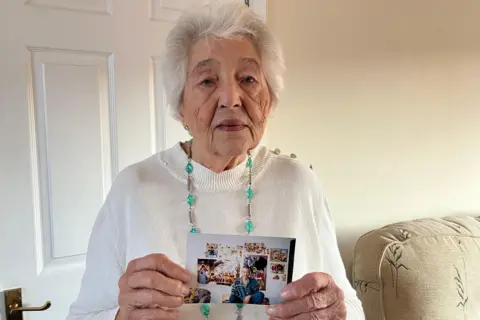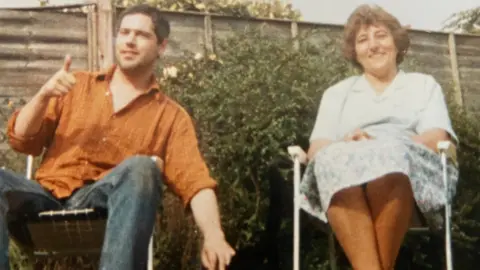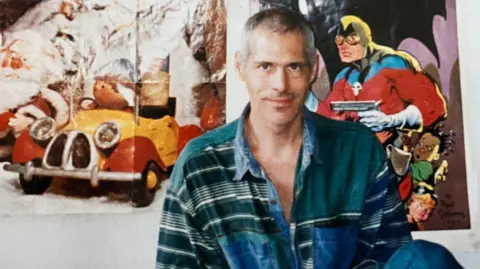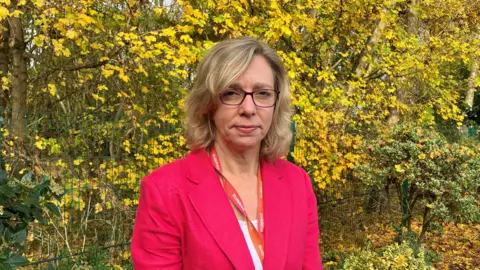'I don't regret helping my son die'
 Matt Knight/BBC
Matt Knight/BBCA woman who was with her terminally ill son when he took a drugs overdose to end his life says it is time to legalise assisted dying.
Heather Pratten, 87, from Rayleigh in Essex, was initially accused of murder over her son Nigel Goodman's death back in 2000.
The 87-year-old was later convicted of a lesser offence and given a conditional discharge.
"I just hope that this country will now see the necessity of giving people the chance of a peaceful death," she said.
MPs are due to vote on the Terminally Ill Adults (End of Life) Bill on Friday.
 Supplied
SuppliedMr Goodman decided to take his own life after struggling with the effects of Huntington's disease, his mother said.
He took a heroin overdose to end his life on his 42nd birthday at his flat in Plaistow, east London.
His mum was arrested after she rang the police.
"I couldn't just walk out and leave him," she explained.
"I called the police and I told them everything including the fact that in the last few seconds, I put a pillow over his face to help him go."
A post-mortem examination found Mrs Pratten's actions made no difference to her son's death.
She was convicted of aiding and abetting suicide and was given a 12-month conditional discharge. She has since campaigned as a patron of the charity Dignity in Dying.
"I think it is something that is so necessary for people to have somewhere to turn to and for people that are in pain at the end of their life, so they can have a dignified death."
 Supplied
SuppliedSupporters of the legislation - which is a private members' bill put forward by Labour MP Kim Leadbeater - say safeguards have been built into it.
Two independent doctors must be satisfied a person is eligible and a High Court judge would need to make a ruling.
People working in the NHS and in palliative care have said any new law would provide new challenges for staff.
'Training needed'
Dr Karen Chumbley, who is clinical director at St Helena Hospice in Colchester, and a lead in end of life care for the NHS Suffolk and North East Essex Integrated Care Board, said it was not something considered by staff in their medical training.
She added: "Some of them will have a personal faith based argument and we utterly respect that.
"Others will feel this is not an element of care they wish to offer alongside palliative care for example.
"If this legislation is passed, we do need to think how it’s going to be delivered, because its important that if people are going to be able to access this we have to have enough trained clinicians that are able to offer this as a service."
 Matt Knight/BBC
Matt Knight/BBCOpponents of the bill, including MPs, have warned people could be put under pressure to end their lives.
Paralympian and House of Lords crossbencher Baroness Grey-Thompson has told the BBC she is worried about "the impact on vulnerable people, on disabled people, [the risk of] coercive control, and the ability of doctors to make a six-month diagnosis".
Follow Essex news on BBC Sounds, Facebook, Instagram and X.
